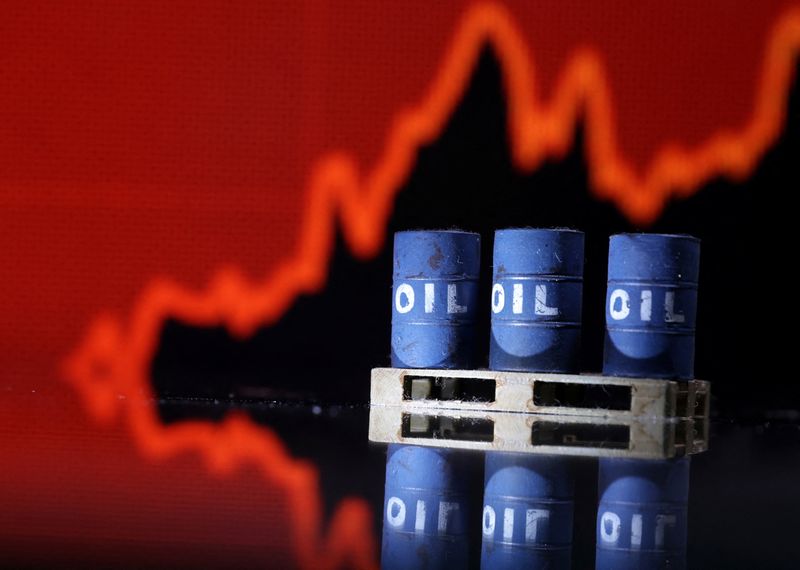(Reuters) - Goldman Sachs (NYSE:GS) said the case for higher oil prices was still strong with current supply shortfalls well above its expectations in recent months, despite a recent retreat led by factors including global recession concerns.
The market will remain in unsustainable deficits at current prices and balancing it will still require "demand destruction on top of the ongoing economic slowdown," the investment bank said in a note dated Aug. 7.
Oil prices hovered near multi-month lows on Monday, pressured by lingering worries about an economic slowdown. [O/R]
Goldman said a divergence between benchmark Brent prices, which averaged $110 a barrel in June and July, and the corresponding Brent-equivalent global retail fuel price of $160 per barrel was not enough to trigger enough demand destruction to end the supply deficit.
"The unprecedented discount of Brent prices, even wider than we expected, can be explained by the worsening Russian energy crisis, as it boosts the costs of transforming crude out of the ground (Brent) into retail pump prices around the world through surging EU gas prices, freight rates, USD and global refining utilization," it said.
Goldman trimmed its Brent price forecasts for the third and fourth quarters to $110 and $125 a barrel, respectively, versus previous forecasts of $140 and $130. It kept its 2023 outlook of $125 unchanged.
The investment bank forecast U.S. retail gasoline and diesel prices to rebound to $4.35 and $5.50 per gallon, respectively, by the fourth quarter and average $4.40 and $5.25 in 2023.

"We forecast that US retail fuel prices will rally into year-end then decline from 2Q23 onward as refining and marketing margins start to normalize," Goldman said.
The U.S. average retail gasoline price hit a peak of $5.02 a gallon in mid-June, data from the American Automobile Association motorist advocacy group showed.